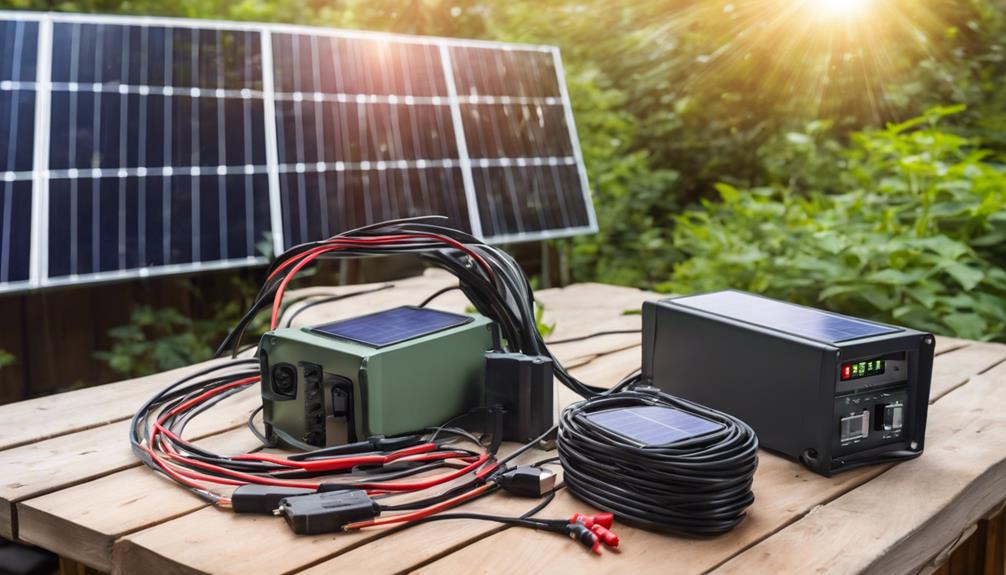
In recent years, RV solar panels have become increasingly popular among outdoor enthusiasts and travelers who want to enjoy the freedom of the open road while still having access to energy. This comprehensive guide will explore the benefits of installing solar panels on your RV, the types of systems available, and how to choose the right setup for your needs.
Understanding RV Solar Panels: What Are They?
RV solar panels are specially designed photovoltaic (PV) systems that convert sunlight into usable electricity for recreational vehicles. These panels can power various appliances, electronic devices, and even charge batteries, allowing RV owners to enjoy off-grid living. By harnessing solar energy, RV solar panels help reduce reliance on traditional power sources, making them an eco-friendly option for those who love to explore the great outdoors.
The Benefits of Installing RV Solar Panels
Investing in RV solar panels comes with numerous advantages. Firstly, they provide a sustainable energy solution, reducing your carbon footprint while enjoying nature. Secondly, solar panels eliminate the need for noisy generators, allowing for a quieter camping experience. Additionally, they offer energy independence, enabling RVers to travel off the beaten path without worrying about finding a power source. Lastly, solar energy is free once the system is installed, significantly reducing long-term energy costs.
Types of RV Solar Panel Systems: Choosing the Right Setup
When it comes to RV solar panels, there are several types of systems to consider. The most common setups include:
1. Grid-Tied Systems: These systems are connected to the electrical grid and allow users to draw power from the grid when solar energy is insufficient. While this option is great for stationary RVs, it isn’t ideal for off-grid adventures.
2. Off-Grid Systems: Designed for those who frequently camp in remote locations, off-grid systems rely solely on solar energy for power. These setups typically include solar panels, a charge controller, batteries for energy storage, and an inverter to convert DC power to AC.
3. Hybrid Systems: Combining grid-tied and off-grid functionality, hybrid systems offer the best of both worlds. They allow users to draw power from the grid while also storing solar energy for use when needed.
Understanding the different types of RV solar panel systems is crucial for selecting a setup that aligns with your travel style and energy needs.
How to Choose the Right RV Solar Panels for Your Needs
Selecting the best RV solar panels involves several factors. First, consider your energy consumption. Calculate the total wattage of the devices you plan to power, and use this information to determine the size of the solar panel system you’ll need.
Next, evaluate the available roof space on your RV. Different solar panels come in various sizes and configurations. If space is limited, consider flexible solar panels that can be installed on curved surfaces. Additionally, think about the climate and locations you typically visit. If you plan to camp in sunny areas, a standard solar panel system may suffice, but if you expect to travel to regions with less sunlight, investing in high-efficiency panels is advisable.
Installation Options: DIY vs. Professional Installation
When it comes to installing RV solar panels, you have two primary options: DIY installation or hiring a professional. DIY installation can save costs and provide a sense of accomplishment, but it requires technical knowledge and the right tools. There are numerous online resources, including video tutorials and guides, that can help you through the process.
On the other hand, professional installation ensures that your solar panel system is set up correctly and safely. This option may be more expensive, but it can save you time and potential headaches down the road. Ultimately, the choice depends on your comfort level with DIY projects and your budget.
Maintaining Your RV Solar Panel System
Proper maintenance of your RV solar panels is essential to ensure their longevity and efficiency. Regular cleaning is necessary to remove dirt, dust, and debris that can block sunlight. Depending on your travel conditions, it’s beneficial to inspect the panels at least once a month.
Additionally, check the wiring and connections to ensure everything is secure and functioning properly. Monitoring your battery levels will also help you identify any potential issues early on. By keeping up with maintenance, you can maximize the performance of your RV solar panel system and enjoy uninterrupted power during your travels.
Cost of RV Solar Panels: Is It Worth the Investment?
The cost of RV solar panels can vary significantly depending on the size and type of system you choose. On average, a complete solar panel setup for an RV can range from $1,500 to $10,000. While the initial investment may seem high, the long-term savings on energy costs, reduced reliance on fossil fuels, and increased comfort during your travels make it a worthwhile investment.
Moreover, many RV enthusiasts find that having solar power enhances their overall camping experience. The ability to camp off-grid, away from busy campgrounds, and enjoy the tranquility of nature without sacrificing modern conveniences is invaluable.
Conclusion: Embrace the Freedom of RV Solar Panels
In conclusion, RV solar panels offer a fantastic way to enhance your outdoor adventures while providing sustainable energy solutions. With the right setup, you can enjoy the freedom of the open road without the constraints of traditional power sources. Whether you choose a DIY approach or opt for professional installation, investing in RV solar panels is a decision that will benefit both your travels and the environment. As you embark on your next journey, consider harnessing the power of the sun to create a more enjoyable and eco-friendly experience.





